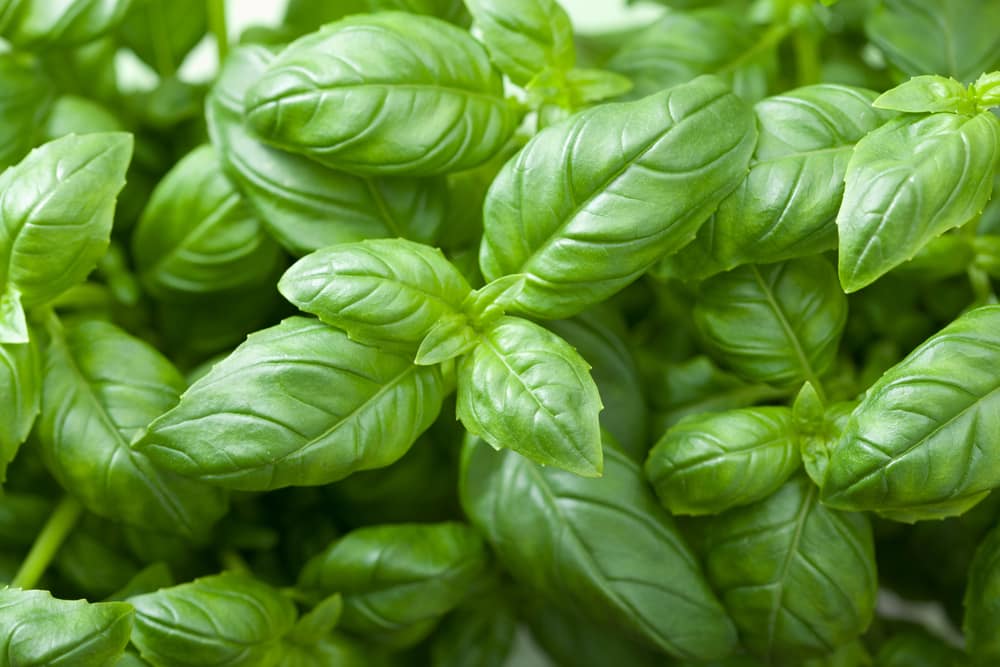
If you are passionate about organically grown herbs then it is quite possible that you would have planted Basil in your garden. It acts as a rich source of vitamins, which makes it a perfect choice for good health. According to experts, this plant requires low maintenance if proper precautions are taken.
However, some people still face the problem of Basil leaves turning white. If you are also facing this issue, then by going through the following details you will be able to troubleshoot the reason behind it. It is advised to first determine the root cause behind the problem before applying the cure.
Reasons for Basil Leaves Turning White
If your Basil leaves are turning white, then one of the following reasons can be the cause of the issue. All of the reasons below are given along with their potential solutions.
- Sunlight Requirements
The photosynthesis mechanism of a plant is directly dependent on the amount of sunlight. Therefore, it is important to place your plant in a location where it receives enough amount of sunlight. In the case of Basil, too much sunlight can cause a scarcity of chlorophyll in the leaves.
A low amount of chlorophyll causes the formation of white spots in the leaves. Try to place the plant where sunlight is present, but it should be directly pointing towards the plant. You can use shades for this purpose. The normal advised hours of direct sunlight range from ten to twelve hours maximum. If you cross this limit then it is quite likely for signs of sunburns to start appearing.
- Issue of Insects/Pests in the Surroundings
Pests and insects are big issues for plants. In most cases, pests suck the moisture of the leaves leaving behind a pale dead leave. It is necessary to consider and take precautions for them. Usually, pesticides are used to kill them and keep your plants in healthy conditions, but in some cases, the use of pesticides is not possible. In such cases, you can use other alternatives like spraying soapy water on your plant. A pest repeller can also be a good option to keep pests away.
- Temperature of Surrounding
This plant requires warmer temperatures to grow. Basil cannot resist temperatures less than ten degrees Celsius. The recommended temperature range is from twenty to twenty-nine degrees Celsius. Moreover, Basil needs a good amount of humidity levels to grow healthily. According to experts, it should be around forty-five to sixty percent. If the humidity level is the reason behind the color change then you should consider changing the location of the plant. If that also does not work, you can install humidifiers near your plant. This will ensure that the humidity in the surroundings of the plant is at an acceptable level.
- Water Requirements
One of the most common reasons behind Basil leaves turning into white color can be the provision of an inappropriate amount of water. If you are unintentionally providing too much water to the plant then this might cause root rot, which can be a potential reason behind the problem. This issue directly starts changing the color of the leaves starting from the bottom to the top.
- Issues with Soil Quality
The quality of soil in which you have planted your Basil plays a characteristic role in its healthy growth. The presence of enough amount of nutrients should be ensured in the soil before planting it. The best way to confirm that your soil has the necessary nutrients, required for plant growth, is to send it for testing. One of the most important ingredients, which should be present in the soil, is Nitrogen. It is because the deficiency of nitrogen turns the color of the leaves into white.
Conclusion
By going through the above-mentioned details, it is confirmed that Basil needs proper attention and maintenance. If you have planted Basil in your garden then you should follow all of the discussed steps to avoid the color change of the leaves. You should take care of:
- Quantity of water,
- Humidity levels in the surroundings should be in the acceptable range,
- Presence of sufficient sunlight,
- Ensure that all nutrients are present that will be required for the growth of your Basil.
